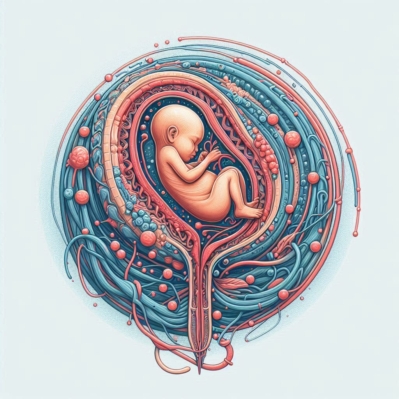Quinley Bright vs. Matthew Pride, M.D., et al
Case Background
On April 16, 2019, Plaintiff Quinley Bright filed a Medical Malpractice lawsuit in the California State, Sonoma County Superior Court (Case number: SCV265779). This case was assigned to Hon. Christopher Honingsberg.
Cause
A mother carrying twins at 35 weeks experienced a premature rupture of membranes and went into labor on June 18, 2016. Her high-risk twin pregnancy involved breech-positioned babies, significantly increasing the risk of birth complications and umbilical cord prolapse. At 7:45 PM, she contacted Sutter Medical Group of the Redwoods, where Dr. Pride served as the on-call obstetrician. Dr. Pride instructed her to go to Sutter Santa Rosa Regional Medical Center from his home but did not perform an in-person evaluation.
The mother arrived at the Emergency Department at 8:53 PM, reporting her last food intake at 7:30 PM. Hospital staff admitted her and transferred her to Labor and Delivery at 8:59 PM. A second-year family practice resident managed her care under Dr. Pride’s remote supervision. Pride did not perform a sterile vaginal examination to assess labor progression and delayed the cesarean section, citing concerns about her recent food intake. The medical team failed to implement critical precautionary measures, such as bed rest or catheterization, to reduce the risk of cord prolapse.
At 1:10 AM, while the mother was providing a urine sample, she experienced an umbilical cord prolapse, a life-threatening emergency. The medical team performed an emergency C-section, but the delay and lack of preventive measures caused severe birth trauma and permanent injuries to the infant.
Injuries
The infant suffered 20 minutes of oxygen deprivation, leading to hypoxic-ischemic encephalopathy (HIE) and permanent brain damage. This birth trauma resulted in severe developmental delays, cognitive impairments, and motor coordination deficits. The child required a feeding tube for thin liquids and continued to face significant challenges. Despite these obstacles, the child attended school at age 8 when the case went to trial.
Damages
The Birth Injury lawsuit sought compensation for extensive past medical expenses related to the infant’s care and treatment. It included projected future medical care costs, covering long-term rehabilitation and specialized medical equipment.
The family also pursued general damages for pain and suffering, along with compensation for the child’s loss of future earning capacity due to permanent disabilities. The medical center reached a settlement, and the court dismissed the family practice resident from the lawsuit.
Key Arguments and Proceedings
Legal representation
- Plaintiff(s): Quinley Bright
- Counsel for Plaintiff: Michael D. Green
- Defendant(s): Matthew Pride, M.D. | Sutter Medical Group of the Redwoods
- Counsel for Defendants: Robert H. Zimmerman
Claims
The Birth Injury lawsuit focused on allegations that Dr. Pride failed to meet the standard of care for high-risk twin pregnancies. The legal team argued that he breached obstetrical protocols by not conducting an in-person evaluation of the mother. They contended that the delayed cesarean section and the failure to conduct proper vaginal examinations or implement preventive measures fell below acceptable medical standards. These lapses were critical in causing the umbilical cord prolapse and subsequent birth trauma.
Defense
Dr. Pride argued that his remote management adhered to acceptable medical standards. He claimed that the mother’s recent food intake posed legitimate anesthesia-related risks, making an immediate cesarean section unsafe.
The defense maintained that his supervision of the family practice resident was adequate and that constant in-person presence was unnecessary given modern telecommunication tools. They argued that the umbilical cord prolapse occurred suddenly and unpredictably, representing a known complication in twin pregnancies. Regarding the timing of the C-section, the defense claimed that delaying surgery reduced anesthesia risks and complied with standard obstetrical practices. Expert witnesses testified that hypoxic-ischemic encephalopathy could have occurred even with immediate surgical intervention or an in-person evaluation.
Jury Verdict
On September 17, 2024, The jury awarded $26,295,548 in damages for an infant’s severe birth trauma caused by obstetrical negligence. The award included $695,548 for past medical expenses. This amount covered treatments, therapies, and medical interventions required from birth to trial.
The jury also approved $15,600,000 for future medical care. This accounted for specialized treatments, rehabilitation, and medical equipment needs. Additionally, $3,000,000 was awarded for lost earning capacity, reflecting the impact of the injury on future employment prospects. Finally, $7,000,000 was allocated for non-economic damages in a Birth Injury case.
Court Documents:
Available Upon Request







Leave A Comment